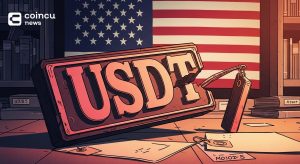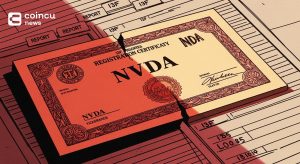Sui Token Supply Is Controversial When Over 84% Of Staked Tokens Are Controlled By Founders
Key Points:
- Justin Bons questions Sui token supply, highlighting founder control.
- Sui Network clarifies token management, emphasizing third-party oversight and community benefits.
Justin Bons, the founder of Cyber Capital, has voiced skepticism regarding the tokenomics employed by Sui Network, citing significant concentration in the hands of its founders.

Justin Bons Questions Sui Token Supply
Despite Sui’s claim of a capped supply of 10 billion tokens, Bons highlighted an imbalance in token distribution.
According to Bons, over 84% of the staked Sui token supply is controlled by the founders, raising centralization risks due to the absence of lock-ins and legal guarantees for token holders. He criticized Sui’s communication, labeling the foundation’s published chart as misleading and expressing doubts about transparency.
Sui Network Responds: Clarifying Token Management and Community Benefits
In response to these allegations, Sui Network released a statement addressing misconceptions about Sui token supply and distribution. The platform clarified that third-party custodians manage locked tokens, released according to a predetermined emission schedule. The foundation emphasized that founders have no control over the treasury or tokens allocated to investors, including the community reserve.
Sui Network defended its token economics, stating that locked tokens support various projects such as developing the Move programming language, enhancing network security, and promoting community initiatives like hackathons and developer grants.
Furthermore, the network explained the distribution of staking rewards, emphasizing their contribution to community welfare and economic balance.
Celebrating its one-year mainnet anniversary, Sui Network has evolved into a prominent Layer-1 decentralized platform. In a recent development, the network partnered with Google Cloud to bolster its AI and Web3 initiatives, showcasing its commitment to innovation and growth in the decentralized ecosystem.
| DISCLAIMER: The information on this website is provided as general market commentary and does not constitute investment advice. We encourage you to do your own research before investing. |






















